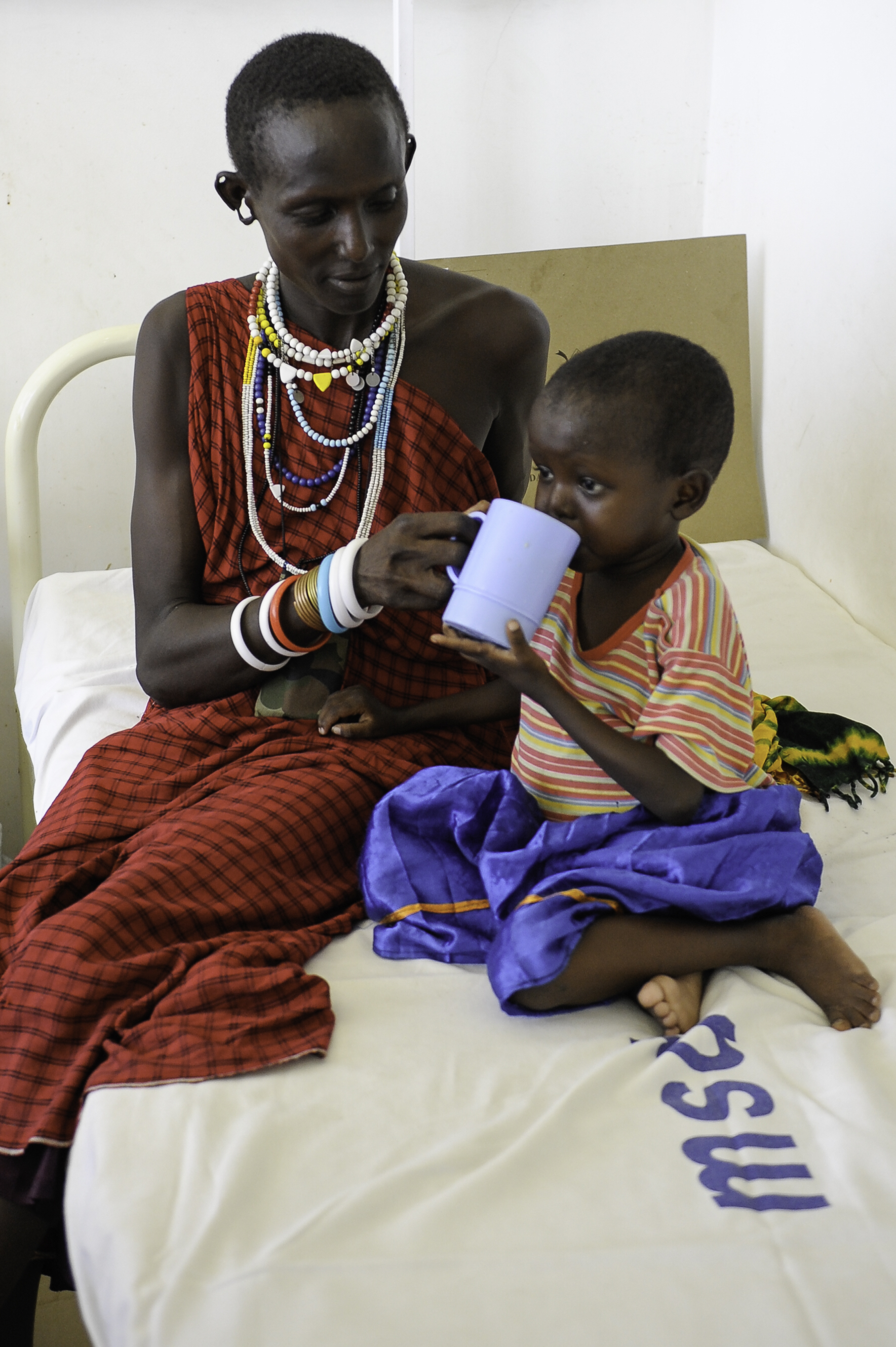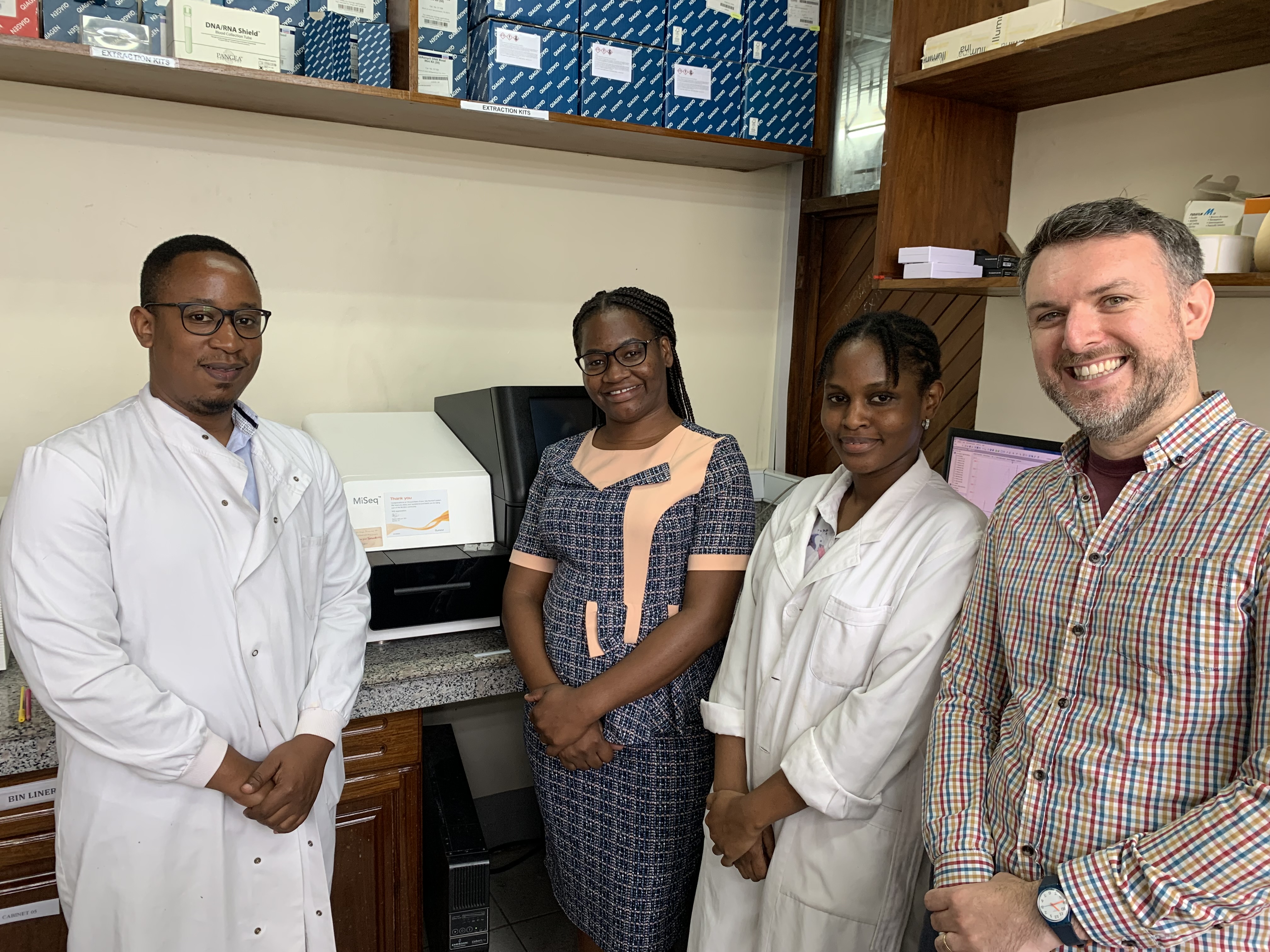Little Princess Trust News
Project tackling childhood cancer in Africa gets global recognition

Research funded by LPT aimed to bridge treatment gaps
A Little Princess Trust project has been recognised for its contributions to improving care for patients with leukaemia in Tanzania.
The SALAMA study, led by Prof Jonathan Bond at University College Dublin and Children’s Health Ireland at Crumlin, has been named as one of EU-AFRICA PerMed Consortium’s Success Stories as part of a new initiative bringing awareness to international collaborations improving care for patients across Africa.
The SALAMA study aims to bridge gaps in childhood leukaemia treatment by exploring the genetic mutations driving the disease in Tanzanian children.
Genetic sequencing - a process that can uncover the genetic mutations driving cancer - has revolutionised care in high-income countries but remains inaccessible in low-income countries like Tanzania.
“The Success Story initiative highlights impactful Africa-Europe research collaborations in personalised medicine,” said a spokesperson for the EU-AFRICA PerMed Consortium.

“The SALAMA study was selected due to its significant contributions to advancing personalised medicine through collaboration between researchers from Tanzania, Ireland, and the United Kingdom.
"It stood out for its broad geographical scope, sustained partnerships, and notable scientific and societal impacts, meeting the initiative's criteria for success.”
The project builds on a longstanding collaboration between Tanzania and Children’s Health Ireland in Dublin, who have helped to support the treatment of Tanzanian children with cancer for over a decade.
As part of this effort, the SALAMA researchers in Ireland are sequencing the genetics of Tanzanian leukaemia samples. These efforts, driven by clinical research fellow Dr Peter McCarthy, aim to uncover the mutations driving the disease, in order to offer the best treatments.
Dr Magreth Msoffe, part of the project team in Tanzania, highlighted the differences in cancer care between countries:
“Childhood cancer care in Ireland and Tanzania differs significantly due to variations in resources, infrastructure and access to care," she said.
"In Ireland, advanced diagnostic labs and treatment options contribute to high survival rates.
“In contrast, Tanzania faces challenges; the lack of comprehensive diagnostic labs, and socio-economic barriers that lead to low survival rates.
"Efforts made by the SALAMA project are crucial for bridging these gaps by improving access to care and conducting research in resource-limited settings.”
In just four years, the SALAMA study has sequenced the DNA of over 70 patients, providing vital new data about Tanzanian childhood leukaemia. The team will soon begin their analyses.
Professor Bond is excited to move to the next phase of the project. He said: “I think the results are going to be very interesting because we know almost nothing about the genomics of leukaemias in Sub-Saharan Africa compared to high-income countries.
"It is really important to understand if there's something different about these leukaemias and whether we can find a way to target it more effectively.

“Long term, we hope that this project is working towards establishing genomics as a regular part of clinical care in Tanzania.”
Ruchius Philbert, SALAMA project administrator in Tanzania, added: “It has been an amazing experience to be part of the SALAMA study Success Story. Leukaemia survival in Tanzania remains low compared to high-income countries.
"The SALAMA study is addressing this by shedding light on treatment gaps among leukaemia patients in Tanzania and on improving survival through understanding common mutations and targeted therapies."
Prof Bond thanked the Little Princess Trust for their vital backing.
“The Little Princess Trust’s support paid for the genetic sequencing and supported the salaries of people on the ground in Tanzania, enabling them to do the project," he explained.
“There’s a lot that we couldn't possibly have done in the project without the Tanzanian team. Not just caring for the patients, but all the local administration, ethics and understanding the importance of different aspects of the project.
“It's been a really rewarding project so far, and this is only the start of great things.”
Through this vital collaboration, the SALAMA study not only shines a light on the potential of personalised medicine in low-income countries but also offers a roadmap for future global health initiatives.
Latest Posts
The four key steps to knotting the perfect wig
New book reveals reality of a child’s cancer diagnosis
How can we help children and young people with bone cancer?
Charities join forces for Teenage and Young Adult Cancer Awareness Month
Natalie Dormer donates her locks to help children with hair loss




